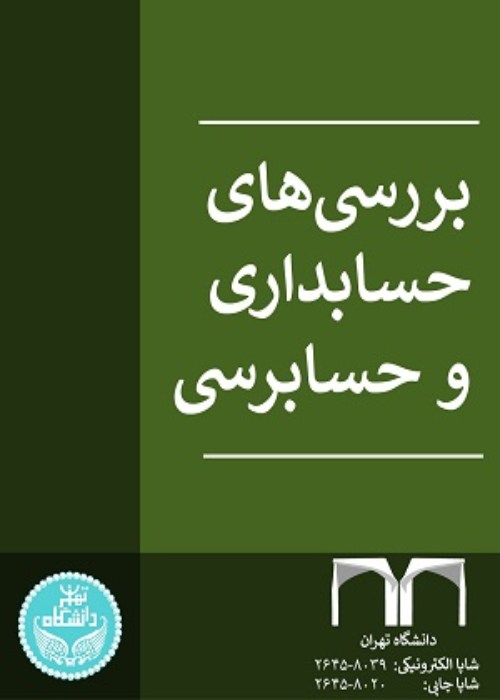Audit Fees: The Role of Regulation of Audit Services Fees
Low audit fees and low balling are among the most important concerns of audit firms and authority bodies, since low audit fees can result in low audit effort, low audit quality and finally low financial reporting. Consequently, the Iranian Association of Certified Public Accountants (IACPA), for the first time in 2015, enforced the Regulation of Audit Services Fees (RASF) (audit pricing based on budget of each project and by taking in to account the overhead costs of the audit firm) for its members. In the absence of sufficient theoretical and empirical evidence on the consequences of the regulation, the purpose of this study is to investigate the role of RASF on audit fees.
To test the research hypothesis, we employ both first difference and fee level regression models. In addition, data (1046 firm-year observations) were manually collected from the annual financial reports of firms listed on the Tehran Stock Exchange as well as the OTC of Iran from 2012 to 2018.
The results of estimating the first difference model show that there is no significant relationship between audit fees and the regulation of audit fees. Such a finding is also supported by the audit fee level model. In addition, sensitivity tests reveal that there is no significant association between RASF and abnormal audit fees employing both first difference and fee level regression models.
Despite the prediction of the IACPA, RASF, as a driver to increase the bargaining power of auditors in audit fee negotiations, does not led to an increase in audit fees. This finding implies that de jure compliance with the regulation occurred instead of de facto compliance, since it seems that the cost of de facto compliance with this regulation (losing a customer) is more than its benefits (increasing audit fees). This research, based on the bargaining power view, for the first time, provides empirical evidence about the outcomes of RASF. It is expected that this study has significant implications for policymakers in Iran and other countries. That is, contrary to the expectation of the IACPA, findings of this study suggest that, in an audit market where supply of and demand for quality audit services are weak and competition among auditors is high, increasing the bargaining power of auditors by simply enforcing a regulation is less likely to be possible. Hence, the emergence of positive consequences of RASF is more likely to need more comprehensive changes.
- حق عضویت دریافتی صرف حمایت از نشریات عضو و نگهداری، تکمیل و توسعه مگیران میشود.
- پرداخت حق اشتراک و دانلود مقالات اجازه بازنشر آن در سایر رسانههای چاپی و دیجیتال را به کاربر نمیدهد.



